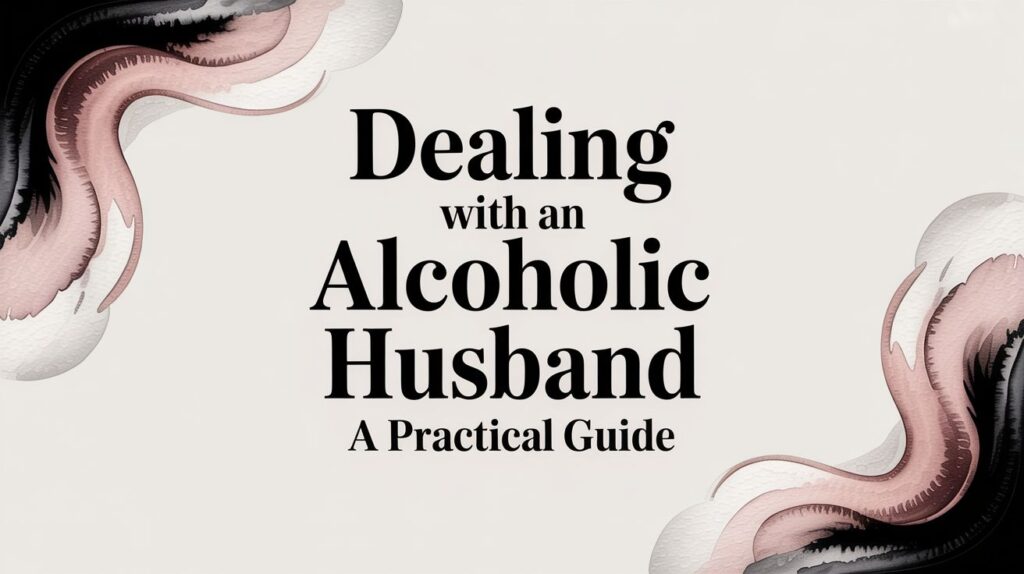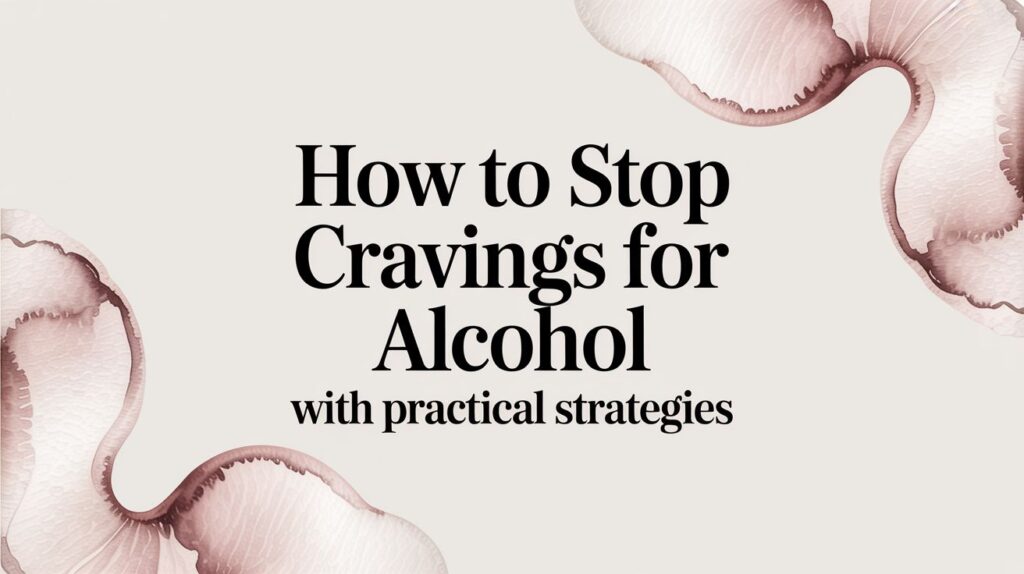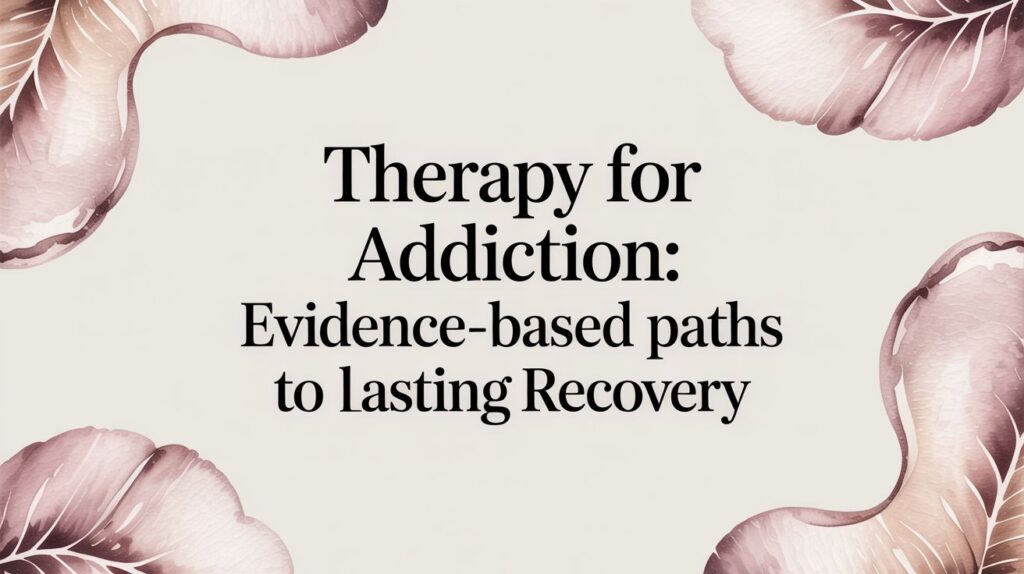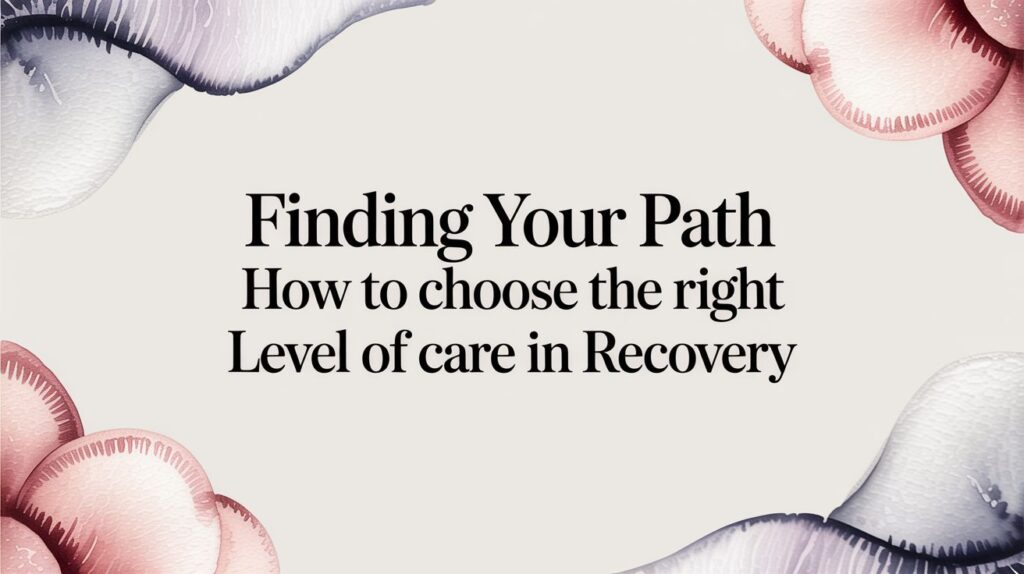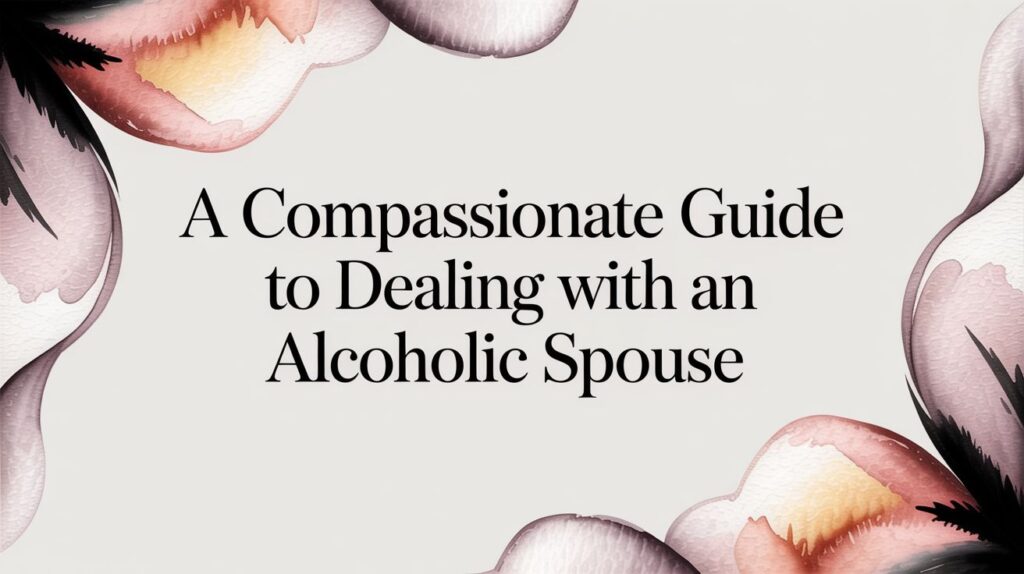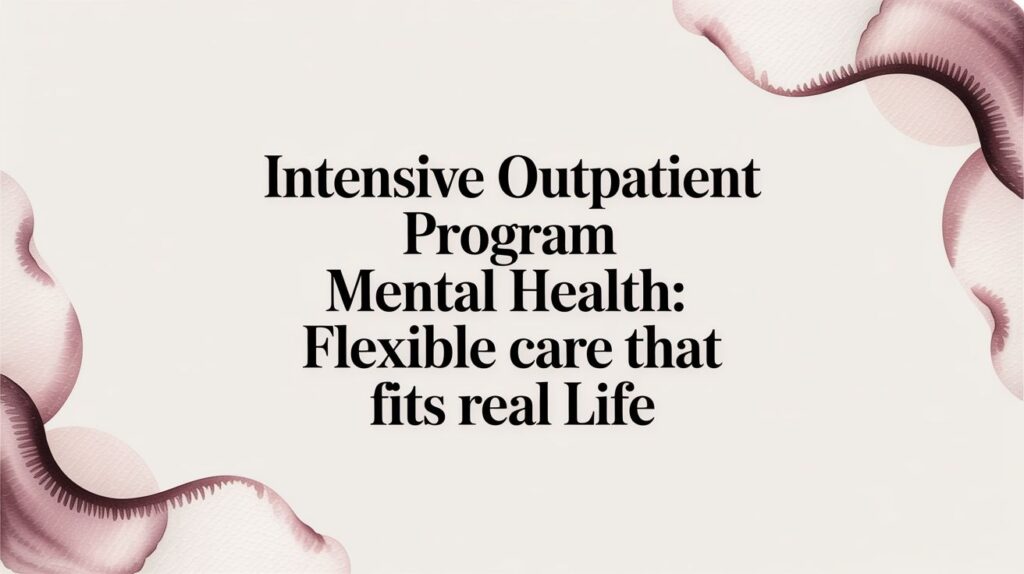When you’re married to an alcoholic, the first step—the one that changes everything—is realizing you’re not fighting your husband. You’re fighting a disease. It’s a subtle but powerful shift in perspective. It’s what allows you to move past the hurt and confusion and start thinking clearly about what to do next.
This isn’t about making excuses for him. It's about protecting yourself by depersonalizing his actions and understanding the real enemy.
What Alcoholism in a Marriage Really Looks Like
It’s an incredibly lonely place to be, watching the man you love slowly get swallowed by something you can’t control. One day he’s the person you married; the next, he’s a stranger driven by a compulsion that defies all logic and love.
You get caught in a vicious cycle. He promises to stop, you feel a surge of hope, and then the crushing disappointment hits when you find a hidden bottle or smell it on his breath again. This is the painful reality for millions of spouses. Gaining clarity on what’s really happening is your first move toward breaking that cycle.
Alcohol use disorder (AUD) is a chronic brain disease. It’s not a choice or a simple lack of willpower. His brain is wired to seek alcohol despite the devastating consequences to his health, his job, and his family. Seeing it this way helps you separate the man from the disease. The broken promises, the mood swings, the neglect—those are symptoms. They aren't a measure of his love for you.
Beyond the Obvious Signs
Living with an alcoholic husband means the signs are often woven into the fabric of your daily life, going far beyond just seeing him drunk. You start to normalize behaviors that are anything but normal.
Recognizing these patterns is crucial to seeing the full picture of the problem.
- Hiding Alcohol: Are you finding bottles in the garage, his car trunk, or stuffed in the back of a closet? This isn't just drinking; it's hiding the extent of his drinking.
- Personality Shifts: Is he irritable and angry when he can't drink? Does he transform into a completely different person—overly emotional or aggressive—when he does?
- Neglecting Responsibilities: This isn't just about one missed appointment. It’s a pattern of letting things slide—forgetting to pay bills, showing up late for work, or breaking promises to the kids over and over again.
- Making Excuses: He’ll probably blame anything and everything else for his drinking. His stressful job, a fight you had, the economy. He builds a story where alcohol isn't the problem; it's his solution.
Realizing you’re dealing with a medical condition is the key that unlocks you from the emotional prison. You can finally stop asking, "Why is he doing this to me?" and start asking, "What do I need to do to protect myself and my family?"
Acknowledging the Broader Impact
This isn’t just his problem. Alcoholism is a family disease that pulls everyone into its orbit. The constant anxiety and stress can wreck your own mental and physical health, leaving you exhausted, depressed, and running on empty.
Children are particularly vulnerable. They soak up the chaos and instability at home, which can have lasting effects. It’s absolutely vital to understand the significant risks parents face due to drug and alcohol abuse to grasp how deeply this impacts everyone in the family.
You're also not alone in this fight. This is a global health crisis. Globally, an estimated 400 million people have alcohol use disorder (AUD), and men account for about two-thirds of all cases. In 2019, alcohol was responsible for 2.6 million deaths, with 2 million of those being men.
These stark numbers show that spouses are often on the front lines, left to manage the fallout. Reading more about these global alcohol statistics from the WHO can help validate what you’re going through and remind you that you are not isolated in this struggle.
How to Create a Safety Plan for Your Family
When your husband’s drinking becomes volatile, aggressive, or just plain unpredictable, your physical and emotional safety—and that of your children—becomes the absolute priority. Let's be clear: creating a safety plan isn't an overreaction. It's a necessity.
This isn’t about deciding whether to leave the marriage right now. It’s about creating a stable foundation so you can think clearly and act safely, no matter what happens next.
This infographic captures the mental shift you need to make—moving from hurt and confusion to a proactive stance focused on safety. It's about recognizing the signs, understanding alcoholism as a disease, and depersonalizing the behavior to protect your own well-being.
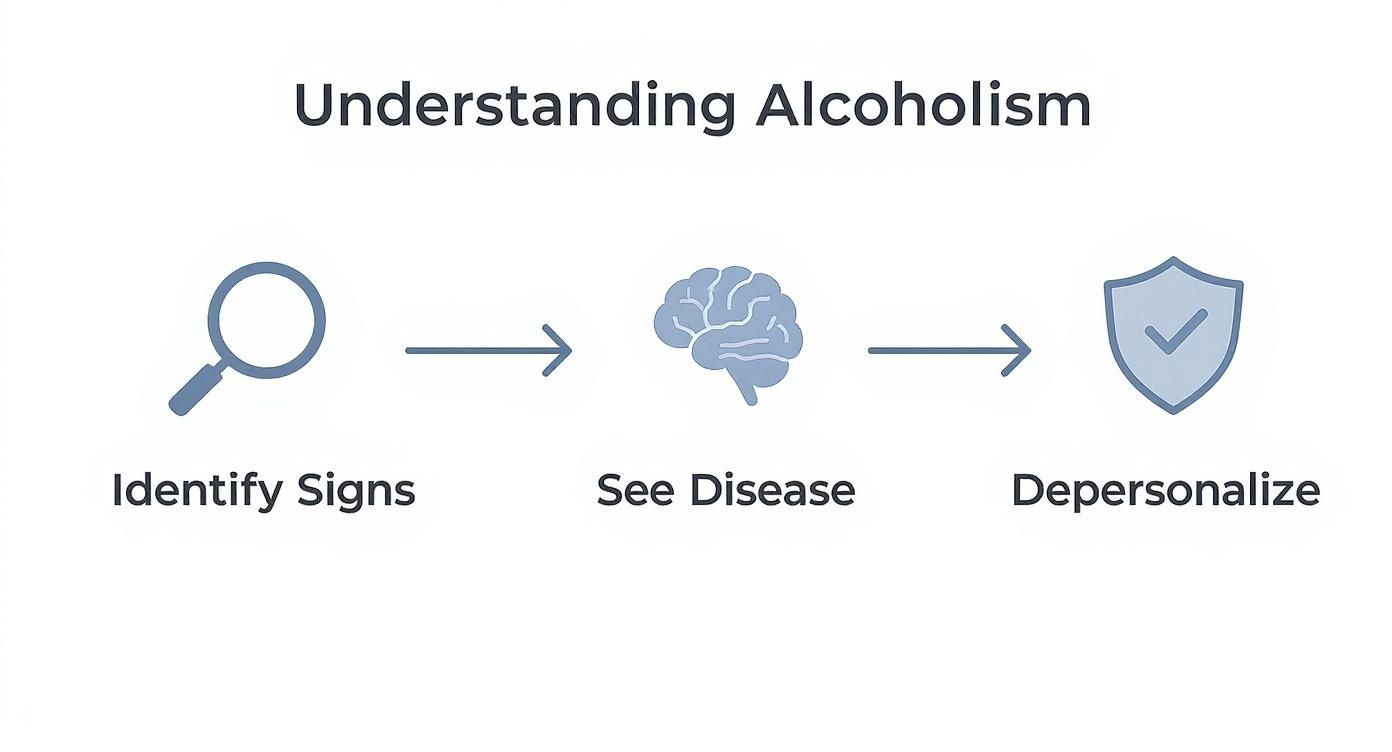
This shift helps you move from being reactive and wounded to being strategic and safe. Now, let’s get practical. A solid safety plan has tangible components you can put in place today.
Here is a simple checklist to get you started.
Immediate Safety Planning Checklist
| Action Item | Why It's Important | How to Do It |
|---|---|---|
| Pack a "Go-Bag" | You may need to leave on short notice. Having essentials ready removes a major barrier to getting to safety. | Pack copies of documents (birth certificates, licenses), cash, spare keys, medications, and a change of clothes for you and the kids. Keep it with a trusted friend. |
| Secure Finances | Financial control is often a tool of manipulation. A private account gives you independence and options. | Open a bank account in your name only. Start diverting small amounts of money if possible. Even a little adds up. |
| Identify a Safe Haven | Knowing exactly where you'll go eliminates panicked decision-making in a crisis. | Talk to a trusted friend or family member who understands the situation. Research local domestic violence shelters as a backup. Have the address and number saved. |
| Build a Support Network | Isolation is dangerous. A few key people who know the truth can be your lifeline. | Confide in one or two trusted, non-judgmental friends or family members. Tell them you are creating a plan and might need their help. |
| Establish a Code Word | If you need to signal for help discreetly, a code word can alert your network without escalating the situation. | Choose a simple, unusual word or phrase to use on a call or in a text that means "I need help now" or "Call the police." |
Taking these steps isn’t about expecting the worst; it's about being prepared for anything. This plan is your anchor in the storm.
Assemble Your Emergency Go-Bag
The first concrete step is to get that go-bag ready. This isn’t just a random assortment of items; it’s a thoughtfully prepared kit that ensures you have everything you need if you have to leave in a hurry.
Think about what you and your kids would need for a few days.
- Essential Documents: Make copies of birth certificates, social security cards, passports, driver's licenses, and insurance cards. Put them in a waterproof folder.
- Financial Resources: Stash some cash, a prepaid credit card, and copies (front and back) of your main credit and debit cards.
- Keys and Contacts: Get a spare set of car and house keys made. Keep a written list of important phone numbers—family, friends, your lawyer, a local shelter—in case your phone dies or is taken.
- Personal Items: Pack a change of clothes for everyone, essential medications (for at least a week), and a few small comfort items for the kids, like a favorite stuffed animal or book.
The safest place for this bag is often outside your home, perhaps with a trusted friend or family member. The goal is simple: be able to walk out the door with just your purse and know you have what you need to be safe.
Secure Your Finances and Identify a Safe Haven
Alcoholism and financial instability often go hand-in-hand. Protecting your financial independence is a critical part of your safety plan. If you can, open a separate bank account in your name only. Start setting aside emergency funds, even if it's just a small amount from each paycheck or grocery run.
At the same time, you need to know where you will go. Identify a safe place you can get to at a moment's notice. This could be the home of a close friend, a family member who lives nearby, or even a pre-researched domestic violence shelter. Have a candid conversation with this person so they understand the situation and are prepared to help without judgment.
Having a designated safe place and a private financial cushion gives you options. Options create power, and power allows you to make decisions based on safety, not desperation.
Build Your Trusted Support Network
I cannot stress this enough: you cannot do this alone. Isolation is one of the most dangerous side effects of living with an alcoholic. It’s time to build a small, trusted circle of people you can call on short notice.
This isn't about gossip or complaining; it's about survival. Let one or two close friends or family members know what's really happening at home. Explain that you’re creating a safety plan and may need to call them for help without much warning.
This network is your lifeline. Research consistently shows the immense strain that male-pattern drinking places on a marriage, often correlating with higher risks of domestic violence and severe mental health challenges for spouses. Recognizing this reality isn't pessimistic—it's realistic. You can discover more about the lived experiences of spouses of alcohol-dependent partners to see you are far from alone in this struggle.
Breaking the Cycle of Enabling and Codependency

It’s a gut-wrenching moment when you realize your best intentions—the things you do out of love to keep your family from falling apart—might actually be making things worse. When you’re married to an alcoholic, the line between supporting the person you love and enabling their addiction gets incredibly blurry.
Don't blame yourself for this. You're operating from a place of love, desperately trying to manage the chaos.
But enabling behaviors are the short-term fixes that prevent your husband from feeling the full, natural consequences of his drinking. Recognizing these patterns is the very first step toward breaking a cycle that has both of you trapped.
Distinguishing Support from Enabling
This is a critical distinction, so let's get right to it. True support empowers recovery; enabling prolongs the addiction. Support encourages him to change, while enabling means you absorb the negative fallout from his choices, shielding him from reality.
Think about this common scenario: Your husband is too hungover to go to work.
- Enabling looks like this: You call his boss and lie, saying he has the flu. This saves his job for the day, but it teaches him a dangerous lesson: his drinking has no real professional consequences. You've just become his safety net.
- Support looks like this: You calmly say, "You'll have to be the one to call your boss and explain why you can't come in." This feels incredibly hard, even cruel, in the moment. But it forces him to face the direct result of his actions.
The addiction thrives in a consequence-free environment. Your goal is to lovingly remove the buffers that protect it.
Common Enabling Behaviors You Might Recognize
Enabling is sneaky. It often masquerades as being a loving, protective spouse. See if any of these feel familiar:
- Making Excuses: Telling your friends you have to cancel dinner plans because he "isn't feeling well" when the truth is he's too intoxicated to go.
- Absorbing Consequences: Quietly paying the late fees on a bill he forgot about during a binge. Or cleaning up a mess he made and will never remember.
- Providing Financial Support: Giving him cash for "gas" or "groceries" when you have a sinking feeling it's going straight to the liquor store. It's also covering his half of the mortgage after he loses yet another job.
- Ignoring the Problem: Actively avoiding any conversation about his drinking just to keep the peace. This creates a home where the elephant in the room is never, ever mentioned.
These actions, all born from a desire for stability, end up building a protective wall around his addiction, shielding it from the very things that might finally motivate him to get help.
Codependency almost always grows in this environment. It’s a painful pattern where your own self-worth and happiness get tangled up in trying to control or "fix" your husband's drinking. Breaking this cycle isn’t about abandoning him; it’s about reclaiming your own life and sanity.
How to Set Healthy Boundaries with Love
Setting a boundary isn't about punishment—it's about self-preservation. A boundary is simply a line you draw for yourself that defines what you will and will not do, and what you will and will not accept. It’s about detaching from the addiction, not from the man you married.
This is a concept often called detaching with love.
It means you can still care deeply for him and hope for his recovery, but you refuse to participate in the chaos his drinking creates. Your emotional well-being is no longer dependent on whether he is sober or not.
To get started, you have to be clear, calm, and consistent. Communicate these boundaries when he’s sober, without anger or ultimatums. Frame them as statements about your actions, not demands about his.
- Boundary Example 1: "I will no longer lie to your family or your boss to cover for you. You will have to manage those relationships yourself."
- Boundary Example 2: "I am not comfortable having alcohol in our home anymore. If you choose to drink, you'll need to do it somewhere else."
- Boundary Example 3: "If you are drunk, I am going to take the children and stay at my sister's for the night. We need a peaceful and safe environment."
Notice the shift? You aren't saying, "You have to stop drinking!" You are saying, "This is what I will do to protect myself and our kids if you continue." This is a massive power shift. It puts the responsibility for his actions right back where it belongs—on him.
The hardest part is following through. But consistency is what makes a boundary real. It’s what finally begins to dismantle that protective wall around his addiction.
How to Talk to Your Husband About His Drinking
https://www.youtube.com/embed/mBouwZM0qqU
Let's be honest: talking to your husband about his drinking probably feels like walking on eggshells. You're bracing for denial, anger, maybe even blame. More often than not, it seems easier to just say nothing to keep the peace, even if it's a fragile one.
But you can have a productive conversation. The trick is to approach it with a calm strategy, not raw emotion.
Your goal isn't to win a fight or prove you're right. It's to gently open a door for him to see what you see and consider the possibility of change. This means shifting your mindset from confrontation to compassion. You’re not trying to create a moment of conflict; you’re trying to create a moment of clarity.
Setting the Stage for a Productive Talk
Timing and environment are everything. Seriously. The absolute number one rule is to never have this conversation when he is drinking or hungover. He won't be rational, and the talk will almost certainly spiral into a defensive, useless argument.
Instead, pick a time when you’re both sober, calm, and have some privacy. Think a quiet Saturday morning over coffee or a peaceful evening after the kids are in bed. Your body language matters, too. Try to stay relaxed and open, not tense and ready for a fight.
The entire conversation needs to feel safe for him to actually hear you. It's so easy for these talks to get derailed by common communication traps. Learning more about addressing communication breakdowns in relationships can give you some powerful tools to keep things on track.
Use “I Feel” Statements to Share Your Heart
The words you choose will steer this conversation. The quickest way to put him on the defensive is to start sentences with "You." It feels like an attack, and he'll immediately put up a wall.
- Instead of: "You're always drunk, and you’re ruining our family."
- Try: "I feel so scared and lonely when you drink because I see how it’s affecting us."
This simple switch to "I" statements reframes the issue. You're talking about your feelings and observations, not his failures. He can’t really argue with how you feel.
Focus on specific examples, not vague accusations. A blanket statement like "You drink too much" is easy for him to deny. Instead, tie his drinking to a concrete event: "Last Tuesday, you weren't able to help with the kids' homework, and I felt completely overwhelmed and alone."
This approach connects his drinking to real, tangible consequences for the family. You're showing him the impact of his behavior, which is far more powerful than just criticizing the behavior itself.
Present Help as a Shared Goal, Not a Punishment
Once you've shared your concerns, the next step is to gently pivot toward a solution. This is where a little prep work makes a huge difference. Before you even have the talk, do some research on local treatment options that might work for his life, like an intensive outpatient (IOP) or partial hospitalization (PHP) program.
Come to the conversation with information on a couple of reputable centers. When you bring it up, frame it as a path forward that you can walk together, not as an ultimatum.
- Try saying something like: "I love you, and I want us to get our life back. I found a couple of programs that seem really supportive, and I want you to know I'll be there with you every single step of the way."
This shows him you’re a team. You're not just pointing out a problem; you're offering to be an active part of the solution. It's also helpful to prepare for what comes next. Knowing what to say to someone in rehab can equip you to be a constructive, loving support system as he begins his journey.
If these one-on-one conversations aren't getting through, it might be time to think about a professionally-led intervention. This is a more structured approach where family, friends, and a trained specialist come together to help him finally see the severity of the situation and accept the help he needs.
Building Your Own Support System Is Essential

Living with an alcoholic husband can feel like being stranded on a desert island. The isolation is crushing, and it’s easy to start believing you’re the only person in the world going through this specific kind of pain.
But you cannot carry this weight by yourself—and you don’t have to.
Building a support system dedicated to your well-being isn't selfish. It’s not a sign of weakness. In fact, it's the single most powerful step you can take to build the resilience needed for the long road ahead. This network becomes your anchor, keeping you steady while the chaos of addiction creates waves all around you.
Find Your People in Al-Anon
One of the first places I recommend to families is Al-Anon. It’s a fellowship created specifically for the friends and family members of alcoholics, and it's a game-changer. It’s not about getting your husband sober; it's about helping you recover from the fallout of his drinking.
The magic of Al-Anon is in the shared experience. When you walk into a meeting (or join one online), you're suddenly surrounded by people who get it. They understand your story without you having to explain the nuances of a broken promise or a hidden bottle. The relief of being truly understood is immense.
In these meetings, you learn practical coping skills and dig into the powerful concept of detachment with love. You'll hear stories that mirror your own, giving you perspective and strength. Most importantly, you will realize you are not alone.
Al-Anon provides a judgment-free space to unpack the confusion, anger, and grief that have become your constant companions. It’s a place to find sanity for yourself, regardless of whether the alcoholic is still drinking.
Consider Individual Therapy for Your Own Healing
While group support is invaluable, the targeted guidance of a professional therapist can be life-changing. Let's be honest: dealing with an alcoholic spouse often involves complex trauma, grief, and a level of emotional exhaustion that’s hard to describe. A therapist who specializes in addiction and codependency can help you navigate these feelings in a safe, confidential setting.
Therapy offers a space to:
- Process Your Trauma: The constant stress and unpredictability of living with addiction can lead to real symptoms of anxiety, depression, and even PTSD. A good therapist can give you the tools to manage these conditions.
- Rebuild Your Self-Esteem: Addiction has a nasty habit of eroding your sense of self. You may have started to believe you're the problem or that your needs don't matter. Therapy helps you rediscover your own worth.
- Establish Stronger Boundaries: A therapist can help you identify codependent patterns and practice setting the healthy boundaries that are absolutely necessary for your own emotional safety.
Think of therapy as an investment in your own long-term health. It equips you with the emotional armor you need to protect yourself, whether you decide to stay in the marriage or it’s time to leave.
Support Resources for Spouses of Alcoholics
Choosing the right support depends on your personal needs, comfort level, and what you’re hoping to achieve. Many people find that a combination of different resources provides the most comprehensive help, layering professional guidance with peer understanding.
Here’s a quick look at how these options compare to help you decide where to start.
| Resource Type | What It Offers | Best For |
|---|---|---|
| Al-Anon or Nar-Anon | Peer support, shared experiences, and specific coping strategies for families of addicts. It’s free and widely available. | Finding community, feeling less isolated, and learning practical day-to-day coping skills from others in the same situation. |
| Individual Therapy | One-on-one professional guidance tailored to your specific emotional needs, trauma, and personal history. | Deeply processing personal trauma, addressing co-occurring mental health issues like anxiety or depression, and developing personalized strategies for boundaries and self-care. |
| Trusted Friends & Family | Emotional comfort, practical help (like childcare or a safe place to stay), and a sense of connection with people who already know and love you. | Immediate emotional validation and tangible, real-world assistance from your existing personal network. |
Ultimately, your support system is your lifeline. Trying to navigate this journey alone isn't just difficult—it's unsustainable. By reaching out to Al-Anon, seeking therapy, and leaning on trusted friends, you create a foundation of strength that will empower you to make the healthiest decisions for yourself and your children.
Answering Your Questions About This Journey
Living this reality day in and day out kicks up a storm of questions. The "what ifs" and "should I's" can feel relentless, leaving you stuck, exhausted, and completely uncertain. Let’s tackle some of the hardest, most common questions that come up when your husband is an alcoholic.
Will He Ever Really Get Better?
This is the question that echoes in the quiet moments late at night. The honest, unfiltered answer is this: recovery is absolutely possible, but it is not guaranteed. I've seen countless people reclaim their lives from alcohol addiction and build healthy, sober futures. But that change has to come from him.
Recovery is a process, not a single event, and it almost always involves setbacks. The real driver of success is his genuine willingness to show up for treatment and do the hard work of maintaining long-term sobriety. While pressure from family can get someone in the door, lasting change only happens when they find their own internal reason to get better.
What If He Refuses to Get Help?
Denial is one of the most powerful and baffling symptoms of addiction. When your husband flat-out refuses to admit he has a problem or get treatment, it's a uniquely heartbreaking and frustrating place to be. You cannot force him into recovery.
When you hit this wall, your focus has to pivot. It's no longer about getting him help; it's about protecting yourself and any children involved. This means holding firm on the healthy boundaries you've set. It might also be the right time to see what outpatient mental health treatment could offer you. A therapist can give you a safe space to process the trauma and make a clear-headed plan for what's next.
Sometimes, the most loving thing you can do is to stop shielding him from the natural consequences of his drinking. It might be the wake-up call he needs. Even if it isn't, it's a necessary step for your own survival.
Your well-being cannot depend on his sobriety. You have a right to peace and safety, whether he chooses to get help or not.
When Is It Time to Leave?
This is an intensely personal and painful decision, and there’s no magic formula that tells you "when." But there are clear signals that the relationship has become unsustainably damaging and dangerous.
It might be time to seriously consider leaving if:
- There is any kind of abuse. Physical, emotional, or verbal abuse is a hard line. Your safety and your children's safety are non-negotiable.
- Your own health is collapsing. If the constant stress is causing you severe anxiety, deep depression, or physical health problems, you have to put your own oxygen mask on first.
- The environment is harming your kids. Children are incredibly vulnerable to the chaos and instability of addiction. If their well-being is constantly at risk, it may be time to create a safer home for them, even if that home is somewhere else.
- You've done everything you can. You’ve set boundaries, you’ve begged, you’ve offered help, you've gone to therapy yourself, and absolutely nothing has changed.
Staying because you're afraid—of the finances, of being alone, of his anger—is understandable, but it's not a healthy foundation for a life. The reality is that about half of all marriages involving an alcoholic partner end in divorce. It's not because the love disappeared, but because the sober spouse had to choose their own survival.
At Altura Recovery, we know that addiction fractures the entire family. If you need guidance on how to help your husband or support for your own healing, our compassionate team is here. We build programs that provide the structure and skills needed for real, lasting change. Find out more at https://www.alturarecovery.com.

